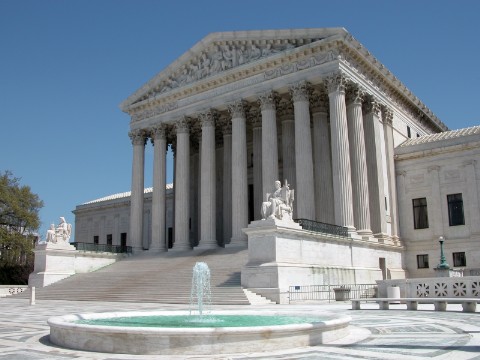 On March 29, the Supreme Court will hear oral arguments in Wal-Mart v. Dukes. WLF identified this case some years ago as having broad public interest implications, and we have filed five briefs throughout the case’s history. We are also hosting a briefing tomorrow, Tuesday, March 22, in preparation for the Court’s oral argument.
On March 29, the Supreme Court will hear oral arguments in Wal-Mart v. Dukes. WLF identified this case some years ago as having broad public interest implications, and we have filed five briefs throughout the case’s history. We are also hosting a briefing tomorrow, Tuesday, March 22, in preparation for the Court’s oral argument.
The speakers on our panel of experts approach the case and its issues from differing perspectives. Wal-Mart certainly has inspired a wide range of opinions, all of which agree on one thing: the overarching importance of the case to civil litigation. Below is a sample of opinions on the case, some of which will be reflected if you tune in online live or join us at our headquarters tomorrow at 9:30 AM EST:
“[The case addresses] whether a federal court may hear a nation wide class-action on behalf of hundreds of thousands of female Wal-Mart employees, charging the company with engaging in a pattern and practice of pay and promotion discrimination.” –SCOTUSblog
“Rule 23 establishes limitations and procedural requirements designed to ensure that the class action device does not alter the parties’ underlying substantive rights. In the decision below, the court of appeals jettisoned those essential protections in an attempt to shoehorn 1.5 million plaintiffs from across the country into a single class claiming a “common” employment injury inflicted by literally thousands of different individual supervisors—despite the absence of any specific employment policy that tied the plaintiffs’ claims together.” –Intel Corporation
“If the Supreme Court limits access to a class action in this case, it will enable Wal-Mart to essentially rob its women employees of fair wages without serious legal consequences.” –Justice Watch
“The outcome could affect a wide swath of class action suits in areas including civil rights enforcement and tobacco litigation.” –The Wall Street Journal, Jess Bravin and Ann Zimmerman
“In thus finding commonality despite the absence of any evidence that discriminatory decision-making has affected the class generally, Dukes opens the door to Title VII class actions challenging the promotion and pay practices of virtually all large, decentralized employers, who necessarily rely on individual judgments by local decision-makers regarding which candidates to promote into higher management.” –Costco Wholesale Corporation
“The court’s decision on [Dukes v. Wal-Mart] will almost certainly affect all sorts of class-action suits, including ones asserting antitrust, securities and product liability. If nothing else, many pending class actions will slow or stop while litigants and courts await the decision in the case.” –The New York Times, Adam Liptak and Steven Greenhouse
